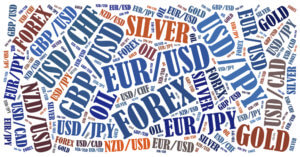Asian stocks dropped to two-year lows on Wednesday, as China seemed unlikely to ease its strict COVID restrictions anytime soon, while the US dollar’s continued rally and instability in the UK bond market and the pound impacted investors’ optimism worldwide.
MSCI’s broadest index of Asia-Pacific shares outside Japan lost 0.5% but later recovered to trade 0.09% higher. Leading the slump, the blue-chip CSI 300 index shed 1.4% before bouncing back by 1.5%, while Hong Kong’s Hang Seng index was down 0.7%.
The official paper of China’s ruling Communist Party reported that Beijing would maintain its COVID-19 policies to keep the coronavirus outbreaks in the country contained.
Meanwhile, the strong dollar rose above the 146 level against the Japanese yen for the first time since August 1998, leading Tokyo’s authorities to take appropriate actions in the foreign exchange market should the need arise.
The Nikkei 225 index was trading 0.02% lower on Wednesday.
South Korea’s KOSPI index climbed 0.4% after the Bank of Korea (BOK) made a second 50-basis point increase to its benchmark interest rates, setting the key rate to 3.00%, as expected.
Unstable UK Market Weighing on Investor Sentiment
Following a torrid session overnight, the British pound rebounded from a two-week low, driven by the Bank of England (BoE) reportedly signaling its willingness to extend its emergency bond-buying program after BoE Governor Andrew Bailey said the central bank would end the program on Friday.
The Euro Stoxx 50 futures also weakened by 0.1%, but later climbed back by 0.6%.
Analyst Stephen Innes stated that impromptu changes to the UK economic policy leave more questions than answers on credibility and are a headwind for sterling assets.
Chief macro strategist Damien Boey believed the BoE had to exert more effort than usual to control the risk premium in the gilt markets.
The pound gained 0.7% to $1.1049, although there are more significant concerns over the direction of Britain’s policy.
Former US Treasury Secretary Larry Summers said when making a military intervention in a country, it is not a good idea to declare the deadline by which the support will be withdrawn as it would only provide the opposition with a roadmap and reason to wait it out.
Summers has previously criticized British leaders for the pound’s decline, the surge in UK government bond yields, the disruption in the nation’s pensions industry, and the BoE’s emergency intervention late last month.
He has also stated that the BoE hurt its reputation during the turmoil, which may weigh on investors’ confidence that other central banks can keep the markets on stable grounds.











